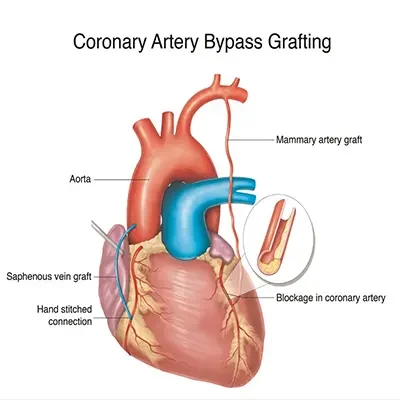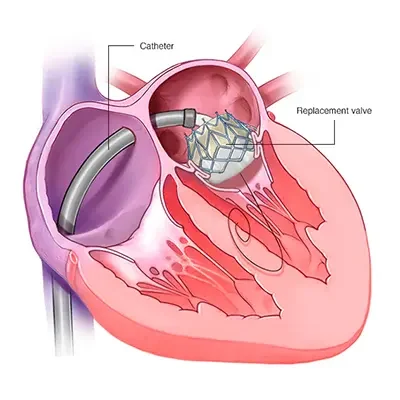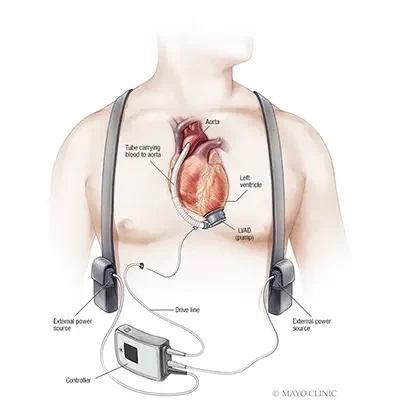Affordable Cancer Surgery in India




Cancer Surgery
Cancer is a medical term used to refer any one of a large number of diseases, characterized by the development of abnormal cells. Diseased cells grow and divide uncontrollably. They have the ability to infiltrate and destroy normal body tissue. The disease also has the ability to spread throughout your body by the means of lymph systems and blood. Cancer cannot be specifically regarded as one disease rather it is made up of many diseases.
More than 100 types of cancers exist and are there that are named after the type of cell or organ from where they originate. The types of cancer can be categorized into different groups. Some of the major categories are:
Carcinoma
It is referred to a category of cancer originating in the human body tissues, in the skin or the tissue of internal organs. It can be further categorized into different subtypes that include basal cell carcinoma, transitional carcinoma, adenocarcinoma and squamous cell carcinoma.
Sarcoma
This category of cancer begins in fat, blood vessels, cartilage, bone, muscle or any other supportive or connective tissue, in cells outside the bone marrow.
Leukemia
This category of cancer originates in blood-forming tissue, which also includes bone marrow.
Myeloma and Lymphoma
This type of cancers starts from the cells of the immune system.
Germ Cell Tumor
This refers to cancers derived from pluripotent cells, most often presenting in the testicle or the ovary.
Blastoma
This category of cancers are derived from immature "predecessor" cells or embryonic tissue. Blastomas are more common in children than in older adults.
+91 888 292 1234

Coronary Angiography

Coronary Angioplasty

Coronary Artery Bypass

Pediatric Cardiac

Vascular Surgery

Heart Valve Replacement

Cardiac Diagnostic

Heart Transplant
Book Appointment Today!
Cancer Treatment Packages in India
| Cancer Treatments Cost India. | No of Ward days | Procedure Cost (USD) |
|---|---|---|
| Advanced Oral Cancer Treatment – Surgery, Radiation and / or Chemotherapy cost in India | 7 days | 4500-7500 |
| Whipple Procedure for Pancreatic Cancer cost in India | 14-21 days | 8000 |
| Total Pancreatectomy for Pancreatic Cancer cost in India | 14-21 days | 8000 to 12000 |
| Radical Hysterectomy for Pancreatic Cancer cost in India | Depends upon the treatment | 5000 |
| Advanced Esophageal Cancer Surgery cost in India | Depends upon the treatment | 6500 to 8500 |
| Ovarian Cancer: Radiation Therapy cost in India | Depends upon the treatment | 3,000 |
| Ovarian Cancer:Chemotherapy cost in India | Depends upon the treatment | 4,000 |
| Ovarian Cancer:Radical Hysterectomy cost in India | Depends upon the treatment | 5,000 |
| Brain Cancer Surgery- Craniotomy cost in India | 5-7 days | 9,000 |
| Brain Cancer Surgery – Micro Surgery cost in India | Depends upon the treatment | 12,000 |
| Brain Cancer Surgery – Gamma Knife Surgery cost in India | Depends upon the treatment | 6,500 |
| Laparoscopic Minimally Invasive Thyroid Surgery cost in India | 2 | 6000 |
| Breast Cancer Treatment – Complete Medical Evaluation | 2 | 1800 |
| Breast Cancer Treatment – Conservative or Modified Radical Mastectomy in India | Depends upon the treatment | 4500 |
| Colon Cancer Treatment – Complete Medical Evaluation | 2 days | 1500 |
| Laproscopic Radical Prostatectomy Surgery cost in India | Depends upon the treatment | 7000 |
| HIFU Treatment for Prostate Cancer Surgery cost in India | Depends upon the treatment | 9500 |
| Colon Cancer Treatment – Cryosurgery cost in India | Depends upon the treatment | 7,500 |
| Colon Cancer Treatment – Polypectomy cost in India | Depends upon the treatment | 3,000 |
| Colon Cancer Treatment – Bowel Diversion Surgery cost in India | Depends upon the treatment | 6,000 |
| Bone cancer treatment cost in India | 7-14 days | 6500- 9500 |
| Cervical cancer treatment cost in India | Depends upon the treatment | 6000 to 7000 |
| Gallbladder cancer treatment cost in India | 7 days | 5500 to 7000 |
| Head and neck cancer treatment cost in India | 7 days | 5500 -7000 |
| Leukemia cancer Treatment cost in India | 14-21 days | 6000-9000 |
| Liver cancer treatment cost in India | 14-21 days | 8000-12000 |
| Lung cancer treatment cost in India | 14-21 days | 8000-12000 |
| Lymphedema treatment cost in India | 14-21 days | 6000-9000 |
| Lymphoma Cancer Treatment cost in India | 14-21 days | 7000-9000 |
| Prostate cancer treatment cost in India | 14-21 days | 4000 -6000 |
| Stomach cancer treatment cost in India | 14-21 days | 8000-12000 |
| Uterine cancer treatment cost in India | 7 days | 6000 -7000 |
| Radio Frequency Ablation for Liver Cancer treatment cost in India | 8-12 days | 14000-21000 |
*The charges mentioned in the above packages are just an estimate and are subject to change, depending on the medical problem and condition of the patient. These are not final packages as post-surgical complications also have a say in the actual bill.
*The final prices offered to the patients is based on their medical reports and is dependent on the current medical condition of the patient, type of room, hospital brand and the surgeons expertise.
Causes of Cancer
Cancer is caused by changes (mutations) to the DNA within cells. The DNA inside a cell contains a set of instructions guiding the cell how to grow and divide. Any disruption in the instructions may allow a cell to become cancerous.
A gene mutation can instruct a healthy cell to:
- Allow rapid growth. As cells grow and divide more rapidly, this creates many new cells that all have that same mutation.
- Fail to stop uncontrolled cell growth. Normal cells know when to stop growing, so that you have just the right number of each type of cell. Cancer cells lose the control (tumor suppressor genes) that tell them when to stop growing. A alteration in a tumor suppressor gene allows cancer cells to continue growing.
- Making mistakes when repairing DNA errors. DNA repair genes, look for errors in a cell’s DNA and make required corrections. A mutation in a DNA repair gene may mean that other errors are not corrected, leading cells to become cancerous.
These mutations are the most common ones found in cancer. But many other gene mutations can contribute to causing cancer.
Gene mutations can occur for several reasons, for instance:
- Gene mutations you are born with. You may be born with a genetic mutation that you have inherited from your parents. This type of mutation accounts for a small percentage of cancers.
- Gene mutations that occur after birth. Most gene mutations occur after you are born and are not inherited. A number of forces can cause gene mutations, such as smoking, radiation, viruses, cancer-causing chemicals (carcinogens), obesity, hormones, chronic inflammation and a lack of exercise.
The gene mutations you are born with and those that you acquire throughout your life, together cause cancer. If you have inherited a genetic mutation that predisposes you to cancer, that does not mean you are certain to get cancer. One or more, gene mutations combines to cause cancer. It is likely that this varies among cancer types. You are more likely to develop cancer when exposed to a certain cancer-causing substance.
Symptoms of Cancer
General signs and symptoms associated with, but not specific to cancer include:
- Fatigue
- Lump or area of thickening that can be felt under the skin
- Weight changes, including unintended loss or gain
- Changes in the skin, such as yellowing, darkening or redness, sores that won’t heal, or changes to existing moles
- Changes in bowel or bladder habits
- Persistent cough
- Difficulty swallowing
- Persistent indigestion or discomfort after eating
- Persistent, unexplained muscle or joint pain
- Persistent, unexplained fevers or night sweats
Stages of Cancer
There are typically four stages of cancer –
- Stage 0: This stage means cancer ‘in situ’ that means ‘in place’. These cancers do not spread to other parts of the body. They are located at their place from where they have started. In this stage, the cancer is possible to cure by completely removing the tumor with the help of a surgery.
- Stage I: It is an early stage, the cancer is usually small and the tumor has not developed into the surrounding tissues. These types of cancers do not spread to different parts of the body or to the lymph nodes.
- Stage II and III: These two stages define the large size of the tumors. These have grown deep inside the surrounding tissues. This stage shows that the cancer has spread only to lymph nodes and not to the different parts of the body.
- Stage IV: This stage indicates that the cancer or tumor has spread to different parts of the body. It is also known as metastatic or advanced cancer.
Cancer Treatment Options
TA number of options are available for treating cancer. These treatments depend on location in the body, stage, type and extent of the cancer. The most common therapies include –
- Surgery: Surgical removal of the tumor, if it is limited to its origin site. Also lymph nodes and nearby tissue can also be removed by the means of surgery. This surgical procedure can either use laser or conventional instruments.
- Radiation Therapy: In this therapy, cancer and certain diseases are treated with ionizing radiation. The cancer cells and their genetic substance are destroyed by ionizing radiation in the area being treated. This therapy makes it impossible for these cells to grow further.
- Hormone Therapy: This treatment use hormones, for changing the way hormones helps the cancer grow in the body. This therapy is mostly used in breast cancer and prostate cancer.
- Chemotherapy: Chemotherapy uses anti-cancer drug cells. These drugs help in destroying the cancer cells by stopping multiplication or growth at a certain point in their life cycles. These drugs are given by injecting into a muscle, applied to the skin, by mouth (orally) or into the vein (intravenously). This depends on the drug and also on the cancer type. This therapy is usually provided in cycles of alternating treatments and rest periods.
- Biological Therapy (Immunotherapy): This therapy indirectly or directly uses the immune system of the body in order to fight cancer. This therapy also reduces the side effects that have developed due to some other cancer treatments.
- Stem cell transplant: Stem cell transplant is also known as bone marrow transplant. Bone marrow is the material inside the bones that makes blood cells from blood stem cells. A stem cell transplant can use your own stem cells or stem cells from a donor. New stem cells grow into mature disease-free cells.
No alternative cancer treatments have been proved to cure cancer. But alternative medicine options helps with side effects of cancer and cancer treatment, such as fatigue, nausea and pain.
Some alternative medicine options found to be helpful for people with cancer include:
- Acupuncture
- Hypnosis
- Massage
- Meditation
- Relaxation techniques
- Yoga
Cancer Recurrence
Cancer Treatment Aftercare
After the cancer treatment, it is essential to have a strict after care. It is required by the patient to drink clean alkaline water, minimize stress, eating of right food and regular check-ups with your doctor. The aftercare also involves the review of physical exam and medical history of a patient. This include periodic endoscopy, imaging procedures, and blood work. The care after the treatment is very important as it helps in determining the changes in health of a patient. Many ongoing problems are also addressed that has been caused by cancer or its treatment. Plus it also checks psychosocial and physical effects that may have developed after the completion of the treatment.
Cancer Treatment in India
Cancer Treatment in India is one of the best in the world. The country offers treatment, technology and hospitality at par with developed countries anywhere in the world. Affordable treatments and the plethora of options of hospitals, trained doctors, medical staff and state-of-the-art technology has made India one of the best places to seek cancer treatment.

